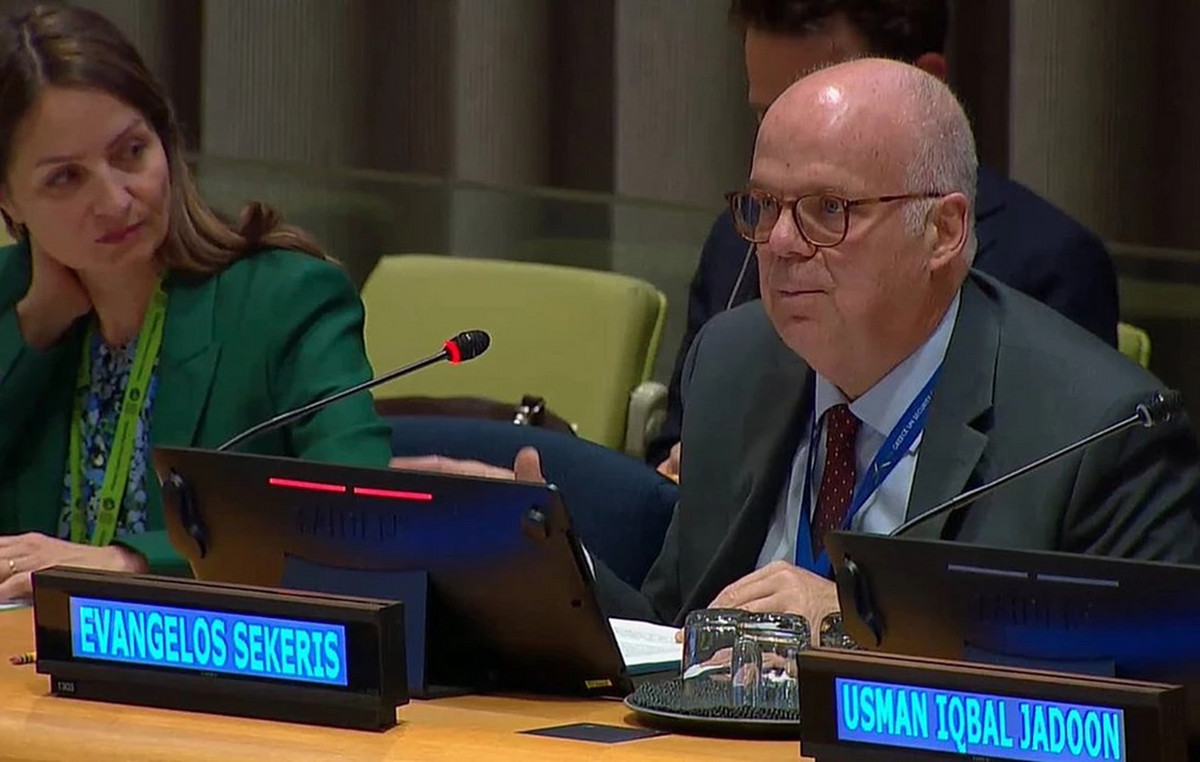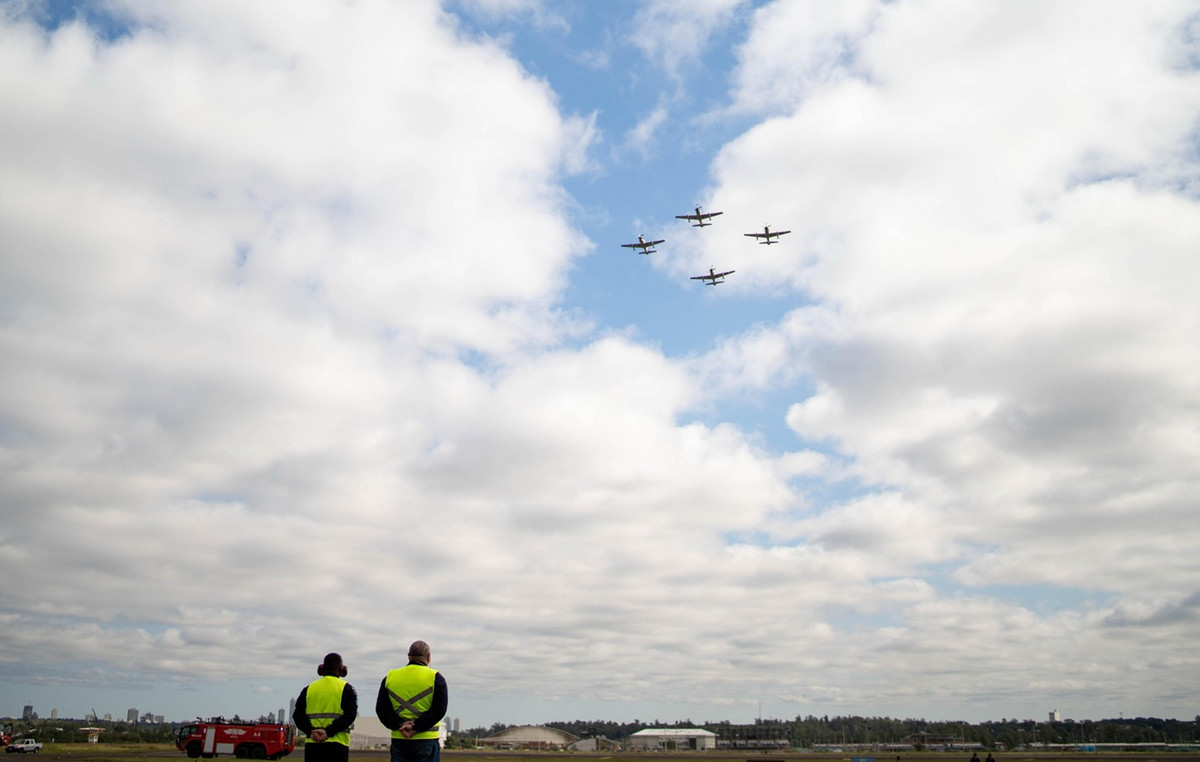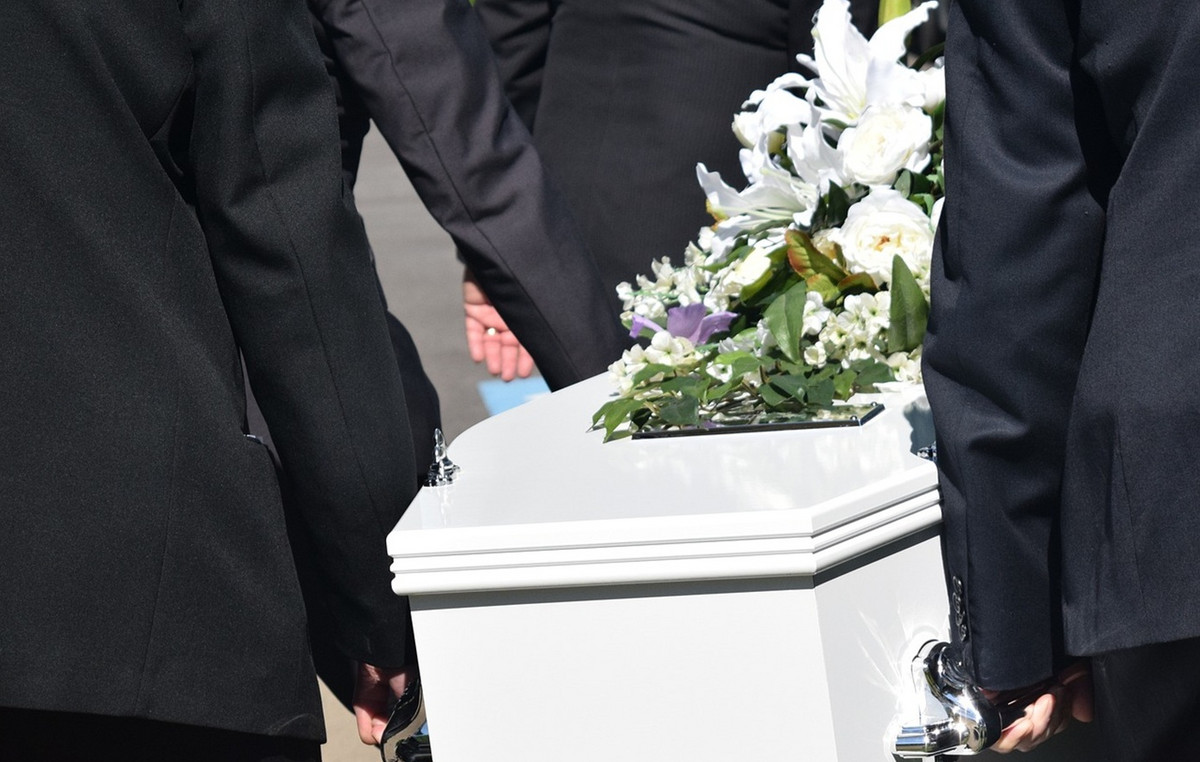Registered at the last minute in the electoral race, former diplomat Edmundo González Urrutia, 74, is today the candidate with the best chance of winning against Nicolás Maduro, in the election next Sunday (28), which will define the next president of Venezuela.
Until then unknown to Venezuelans, González ended up being chosen by the Plataforma Unitária bloc for the herculean challenge of running against Maduro and the entire Venezuelan government apparatus after María Corina Machado – banned from holding public office for the next 15 years – and the candidate she chose, Corina Yoris, were prevented from running.
Last weekend, in the final stretch of an electoral campaign in which Machado and the arrest of members of the opposition leader’s team ended up becoming protagonists, González received the CNN in his home in Greater Caracas.
A CNN also requested an interview with President Nicolás Maduro, and is awaiting a response.
In an exclusive interview before Lula’s recent statement that Maduro needs to respect Venezuela’s democratic process and understand that if he loses, he needs to leave power, González Urrutia praised the sending of observers from the Superior Electoral Court (TSE) to monitor the Venezuelan elections.
For him, who was a former Venezuelan ambassador to Argentina and Algeria, Brazil’s regional influence means that any decision or attention the country receives is “followed very closely.” He also says that he has spoken to high-ranking politicians in Brazil who are not willing to accept electoral fraud in Venezuela.
Read excerpts from the interview:
CNN : There are several reports of arrests of opponents, harassment and intimidation. What is the situation of the opposition in these elections?
- Edmundo Gonzalez (EG): The opposition is arriving at the best moment politically speaking. We have a single candidate, a candidate who was unanimously elected by the members of the platform, we have all the opinion polls that give us a comfortable advantage over the government candidate and we are very satisfied. All of the things you mention are true. There is intimidation, there is a brutal campaign against the candidate, the Venezuelan opposition leader María Corina Machado, there was an attack two days ago, they cut the brake lines of her vehicle, which could cause a tragedy.
These situations are repeated day after day, there is this all the time, verbal aggression, intimidation. This is not the climate that an electoral campaign should have. This climate is not the climate of Venezuela in an electoral campaign.
When I take a plane, if it is the Venezuelan state airline, their allies [governo] are sent to intimidate us. I was coming with María Corina Machado from a tour of the countryside, we stopped on the road at a well-known restaurant for lunch and we had to leave because government groups protested outside against our presence there.
If we stop at a restaurant, the next day it is closed. This has happened repeatedly. And they particularly focus on María Corina, it is impressive.
CNN : Did you feel threatened at any point?
- EG: Not really. They offered protection to María Corina and me, and we accepted it, of course. But more than physical threats, it’s the government’s inflammatory speeches… They call me decrepit. That’s not civilized language for an election campaign. It’s always like this, it’s not a desirable climate, it’s not an appropriate climate for an election campaign, and since they feel that the 25 years they’ve been in power are wearing thin, they’re putting everything at risk.
CNN : President Nicolás Maduro is talking about the possibility of a bloodbath and a civil war. Do you think there is a possibility of political violence in Venezuela after the July 28 elections?
- EG : This is irresponsible, calling on government supporters to take to the streets. These threats of civil war are really irresponsible, because they could give some people the opportunity to do so. But not all Chavismo followers share this language.
CNN : But do you think there is a possibility of political violence?
- EG : I hope not. I trust that the Venezuelan people will accept the results. We are very sure that the polls give a large and comfortable advantage to our candidacy, and I trust that the government will have the capacity to accept the defeat and establish conversations with us to make an orderly and peaceful transition.
CNN: What margin of victory do you estimate you will have?
- EG : Almost all polls measure between 25 and 32 points above Chavismo.
CNN : This is too much.
- EG : It’s a lot and it’s irreversible. They’ve tried to find several methods to reduce this advantage. But whatever they do, at this point it’s impossible for them to reverse this advantage that’s in our favor.
CNN : What methods are you referring to that they used to revert?
- EG : Well, electoral reengineering, moving voters to other centers, a series of tricks of that kind.
CNN : Do you think that if you win, you will be able to take over?
- EG : This is the rule of democracy: some win and others lose, and Venezuela is constitutionally defined as an alternative state, that is, there is an alternation of power here. We trust that the government will have the capacity to accept defeat and begin talks with the opposition that wins these elections.
CNN : Do you believe that the Brazilian government is doing enough to prevent persecution or the violation of some political rights in Venezuela in this electoral process?
- EG : If you haven’t done it yet, you will. There are many people in the government, I know the political trajectory of some of them, who are not willing to support a situation like fraud in Venezuela.
CNN : Are you in contact with government officials who say they are not willing to support fraud?
- EG : I spoke with some of them. I spoke with their diplomatic representatives here in Caracas and I spoke with some very important political leaders in Brazil.
CNN : And what do they say to you?
- EG : Who are doing their best to carry out this process peacefully and in an orderly manner.
CNN : In the end, Brazil’s Superior Electoral Court (TSE) decided to send observers.
- EG : This satisfies us because it guarantees that there will be more serious, qualified electoral observation, which can keep an eye on Venezuela and which can neutralize any attempt to not recognize the results.
CNN : There are two observers. Is that enough?
- EG : It is never enough, the ideal would be to have many more. But these are two quality observers who join the millions of Venezuelans who will be very attentive to the results and give us the guarantee that we will be able to have qualified observation in this process.
CNN : And how did you receive the news about Brazil’s observation?
- EG : With sympathy because Brazil is a country that is highly respected, has a lot of weight in the regional sphere and any decision or statement from Brazil will be followed very closely.
CNN : Is Brazil a major country that helps alleviate some of Venezuela’s problems? How do you see Brazil’s role in the real impact of political life?
- EG : Brazil is a key international actor in the region and is a fundamental international actor to ease any tension that may exist in the Venezuelan political process.
Source: CNN Brasil
Bruce Belcher is a seasoned author with over 5 years of experience in world news. He writes for online news websites and provides in-depth analysis on the world stock market. Bruce is known for his insightful perspectives and commitment to keeping the public informed.







